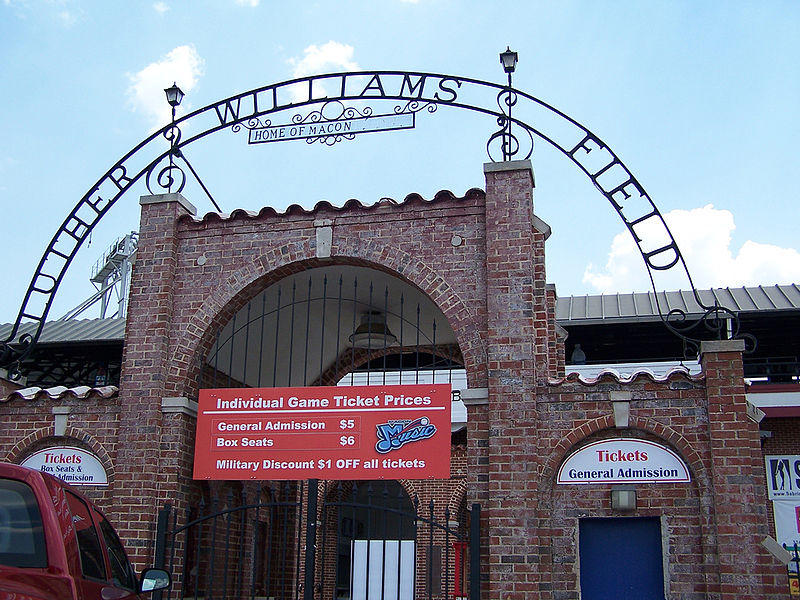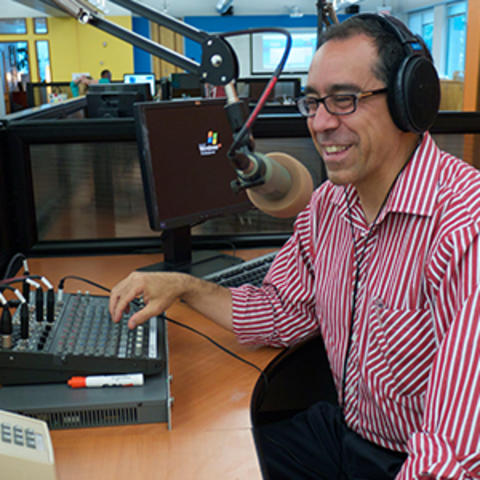Section Branding
Header Content
Will Baseball Spur Development in Macon?
Primary Content
Atlanta has shown that development around a sports stadium doesn't always work. The Vine City section of Atlanta did not turn around when the Georgia Dome opened in 1992. But there may be another chance at that with a new stadium being built near the Dome.
Meanwhile in Macon local officials have begun studying whether this community should build a new minor league stadium downtown. Last week local officials toured South Carolina's cities of Columbia and Greenville and they hope to learn how the new stadiums improve the local economy there. One of those on the tour was Alex Morrison executive director of the Macon-Bibb County Urban Development Authority. GPB's Michael Caputo talked with Morrison about what was learned.
Discussion with Macon-Bibb Urban Development Authority head Alex Morrison.
Michael Caputo: So why don't I be the devil's advocate. We lost a minor league affiliate to Rome years ago why should we even bother trying this again?
Alex Morrison: Well what you saw in Greenville and Columbia South Carolina is that they went through the same thing. Both of them lost teams. They, at the time, weren't ready to build a new stadium and the team went and chased a greener pasture. And that seems to be the cycle that we hear anecdote after anecdote of teams going to a new city. But once they get into a city where there's a really good partnership and the deal really works there and they're willing to stay and the model that a lot of teams are chasing, at least what we saw in South Carolina, is where they can be a critical part of some type of larger redevelopment.
Michael Caputo: In fact I think the Greenville mayor said you can't make a stand alone stadium. What does it take to bring ... does it mean bringing someone else into the fold, to (bringing) a developer into this fold?
Alex Morrison: Yes. All of the stadiums that you're going to see today are going to include some type of master development. And that's what we saw in both in Greenville and in Columbia where there was a development team on place. There's the municipal part of it that makes it a public facility in a multi use facility for the public with a lease to a baseball team. Is the typical structure. And what you have is a developer who's doing a mixed use development that's anchored around the the multi-use sports facility and so you'll see residential development as well as commercial office and retail all around that stadium that is producing (an) exponential economic impact. That's not just ticket sales and concessions. It's a vibe in your downtown.
Michael Caputo: Well I mean Greenville has had has a lot of oars in the water,I suppose this is maybe a way to say. They've got a lot of business, booming business. What comes first then? Does there need to be booming business and a vibrant downtown first and then a stadium? Can a stadium help spur that on?
Alex Morrison: And that's exactly what we were hoping to look at in these two communities. You have two communities that were at a very similar place where we are today, where downtown is coming back, is making its strides. And both of them told us that what they saw in baseball was a catalytic project, something that could take the process of revitalizing your downtown and taking it to the next level. In Greenville you saw it in spades because they actually put it in an area that was not really developing at the same speed as the rest of Main Street and the development grew faster around there and grew out to meet them. In Columbia, they have a large site they're redeveloping that is downtown adjacent and sort of hoping to do the same thing there.
Michael Caputo: Real quick what's next?
Alex Morrison: Next we just had to take away from what we saw and then see if it's the right model for Macon and continue to analyze the feasibility study that we had and see if we can look at sites and things that would work here.
Michael Caputo: And I suppose that means taking the temperature too of the (Macon-Bibb County) commissioners right?
Alex Morrison: Absolutely. That's part of what we were trying to do is just really see how it's worked in other places. And the big takeaway was that it can work. And when it works, it works well for redevelopment overall, not just baseball.


